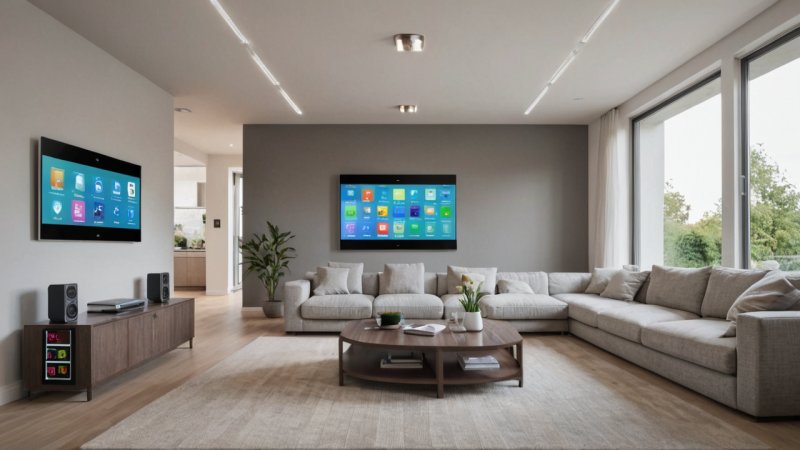As technology continues to advance at an unprecedented pace, the future of smart homes is becoming increasingly exciting. Home automation is no longer just a trend; it's transforming the way we live, enhancing convenience, security, and energy efficiency. In this article, we will explore some of the key trends shaping the smart home landscape and how they can benefit your daily life.
One of the most significant advancements is the integration of artificial intelligence (AI) into smart home devices. AI enables these gadgets to learn from our habits and preferences, allowing for a more personalized experience. For example, smart thermostats can adjust the temperature based on your routine, ensuring comfort while optimizing energy usage. Voice-activated assistants, like Amazon Alexa and Google Assistant, are also becoming more sophisticated, making it easier to control various devices in your home with simple commands.
Another trend to watch is the rise of interconnected devices. The Internet of Things (IoT) is facilitating seamless communication between multiple smart gadgets, allowing them to work together to create a more cohesive smart home ecosystem. Imagine a scenario where your security cameras alert your smart locks to engage when you leave for work, or your smart lights dim automatically when you start a movie. This level of interconnectivity not only enhances convenience but also improves security by providing real-time updates and control.
Energy efficiency is a critical concern for many homeowners, and smart home technology is addressing this issue head-on. Smart lighting systems, for instance, can be programmed to turn off automatically when no one is present in a room. Additionally, solar panel integrations can be monitored and optimized through smart devices, allowing homeowners to track energy production and consumption effectively. This not only helps in reducing utility bills but also contributes to a more sustainable lifestyle.
Security remains a top priority for homeowners, and smart home technology is making strides in this area. Smart security systems now offer features such as remote monitoring, motion detection, and even facial recognition. Users can receive notifications on their smartphones when unusual activity is detected, providing peace of mind whether they're at home or away. Furthermore, smart doorbells equipped with cameras allow homeowners to see who is at their door without having to open it, enhancing security.
Lastly, the future of smart homes is also leaning towards health and wellness. Smart devices, such as air quality monitors, can track pollutants and allergens in your home, alerting you to potential health hazards. Wearable technology is increasingly integrating with home systems to provide insights into your health metrics, promoting a healthier lifestyle. Home gyms equipped with smart equipment can offer personalized workout plans and track performance, making fitness more accessible and engaging.
In conclusion, the future of smart homes is bright, with trends in AI integration, interconnected devices, energy efficiency, enhanced security, and health monitoring paving the way for more intelligent living environments. By embracing these advancements, men can not only simplify their daily routines but also create a home that supports their lifestyle and well-being.






